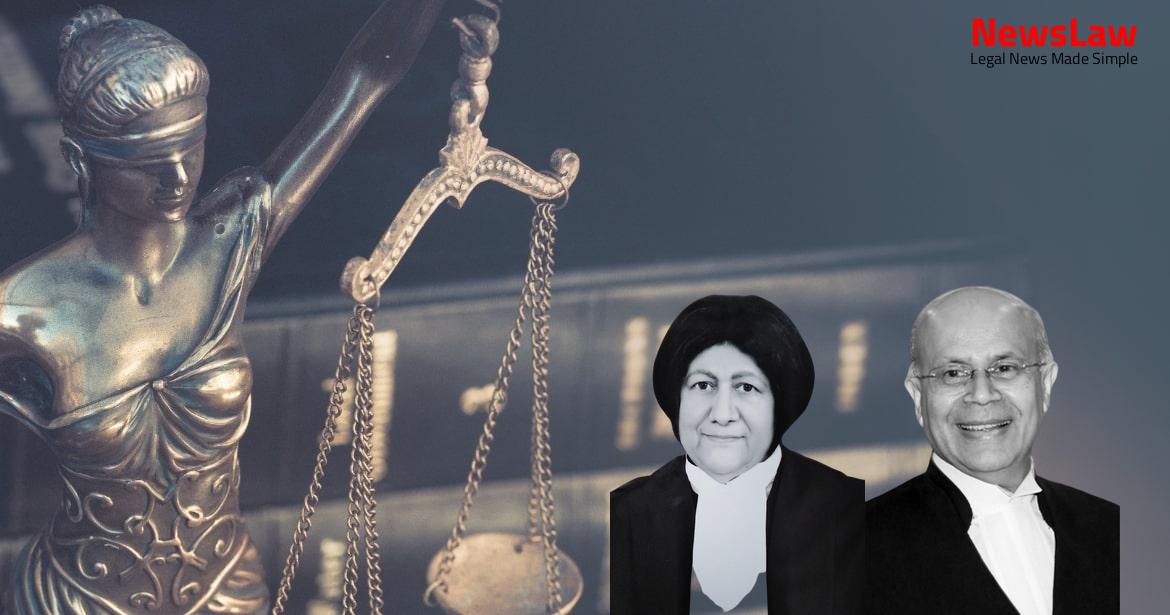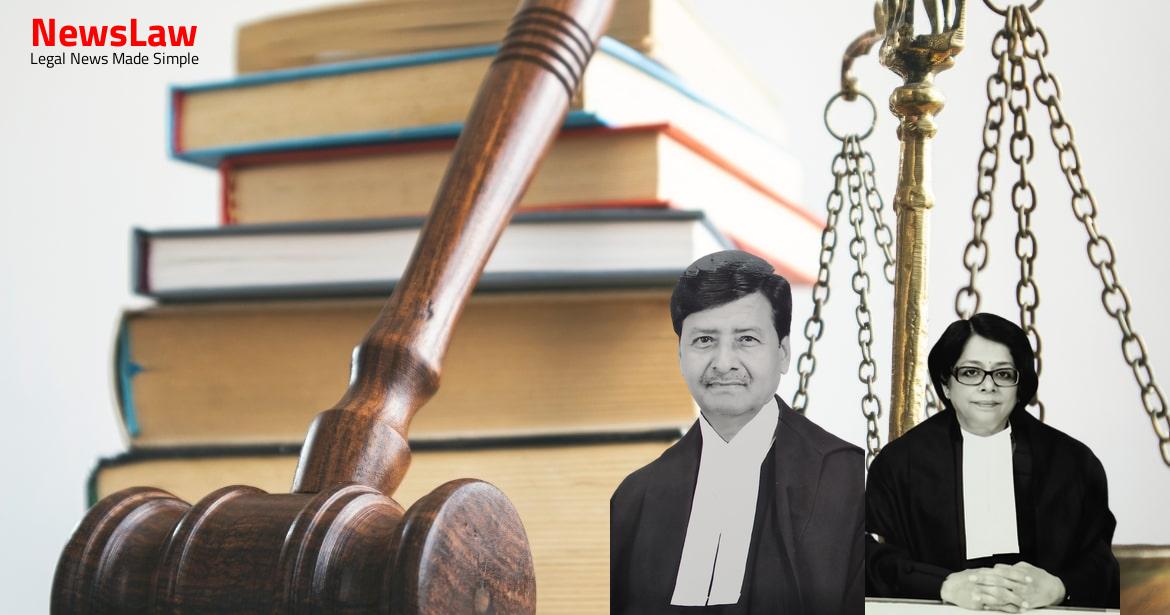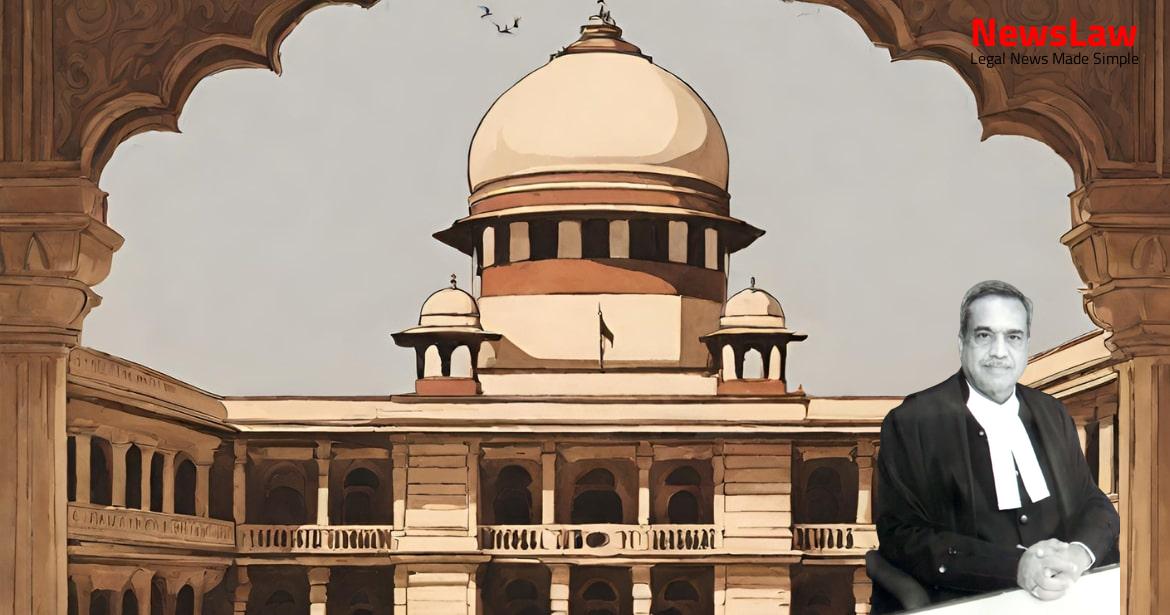In a significant legal ruling, the Supreme Court of India has delivered its judgment in the Land Dispute & Homicidal Assault Case. The case involved a tragic incident stemming from a longstanding land dispute between the parties. The court’s decision has implications for criminal justice and property disputes. Let’s delve into the details of this landmark case.
Facts
- High Court erred in altering the conviction to one under Section 304 Part I, IPC
- Assault was premeditated and the accused were armed
- No material supported the plea of self-defense or assault being on the spur of the moment
- Minor contradictions in witness evidence were insufficient to doubt prosecution’s case
- Two accused were acquitted due to doubtful presence
- State relied on State of Uttar Pradesh vs Faqirey for restoring conviction to Section 302 IPC
- There was a land dispute between the complainant and the accused
- The trial court convicted all four accused in the case
- A civil suit is mentioned to be pending
- The deceased, along with others, were returning to their village on 07.06.2002
- The accused persons allegedly assaulted them near the house of Yeellappa Patil, leading to the homicidal death
Also Read: Land Dispute Resolution: Supreme Court Ruling on Specific Performance
Arguments
- Reliance was placed on Pulicherla Nagaraju vs. State of A.P., (2006) 11 SCC 444.
- Reliance was placed on State of Rajasthan thr. the Secretary vs Kanhaiya Lal, (2019) 5 SCC 639.
- It was argued that a single assault on the head, causing death without provocation in a sudden quarrel or fight, justifies conviction under Section 302, IPC.
- Reliance placed on Manoj Kumar vs State of Himachal Pradesh, (2018) 7 SCC 327, stating no premediated plan to attack, sudden quarrel in civil dispute background.
- Suppression of F.I.R., hospital admission, and injury reports by the prosecution noted.
- Inconsequential that defence not taken under Section 313, Cr.P.C., burden on prosecution to prove charge beyond reasonable doubt.
- Citing Vijay Ramkrishan Gaikwad vs. State of Maharashtra and another, suggesting sentence enhancement to ten years even if conviction upheld under Section 304 Part I, IPC.
- Referring to Raj Kumar vs State of Maharashtra, emphasizing burden on accused for self-defence plea under Section 105 of Indian Evidence Act, 1872.
- Relying on Dayal Singh and others vs State of Uttaranchal, and Gajoo vs State of Uttarakhand, mentioning defective investigation as not denting prosecution credibility regarding premediated murderous assault with common intention.
- Submission by learned counsel for accused alleging no premediated attack, mentioning a verbal duel followed by a scuffle due to a land dispute between related parties near Yellappa Patil’s house.
Also Read: Landmark Judgment: Setting Precedent for Contractual Compliance
Analysis
- The prosecution must stand or fall on its own feet, failure to act fairly and place all relevant materials before the court has caused prejudice.
- A fair criminal trial includes a fair investigation at the pre-trial stage and a fair trial where prosecution does not conceal anything.
- Observations from Dayal Singh case highlight irresponsible investigation and intentional mischief to misdirect the investigation.
- Accused only needs to create doubt about prosecution’s case for benefit of doubt to follow unless case is proven beyond reasonable doubt.
- Accused not required to establish or prove defense beyond reasonable doubt, unlike the prosecution.
- If accused takes a defense that is not improbable and appears likely, with material support, they need not prove anything further.
- Prosecution failed to investigate FIR lodged by accused and did not bring their injury reports on record, creating doubts left unanswered.
- Prosecution’s failure to investigate FIR and bring injury reports on record cannot be dismissed as merely defective investigation.
- Accused were discharged shortly after the occurrence, their injury report not on record with no explanation provided.
- Burden lies on prosecution to prove allegations beyond all reasonable doubt.
- Verbal duel followed by scuffle and injuries is a concurrent finding of fact, with accused also lodging an FIR which was not investigated.
- The burden of proof on the defense under Section 105, Indian Evidence Act,1872 discussed.
- Reference to the case of Partap vs State of U.P. for clarifying the burden of proof on the accused in establishing self-defense.
- Emphasis on the distinction between the burden on the accused and the burden on the prosecution to prove the case beyond reasonable doubt.
- Evaluation of judgments of courts below as erroneous in their findings on the plea of self-defense.
- Explanation that the burden on the accused is less onerous compared to that on the prosecution.
- Highlighting that the accused can discharge his burden by establishing a mere preponderance of probability.
- Differentiation of Dayal Singh case from the present case as it did not involve suppression of materials regarding the accused during trial in addition to failure to investigate.
- Discussion on the importance of prosecution proving its case beyond all reasonable doubt, regardless of the defense not taking certain aspects under Section 313, Cr.P.C.
- Assertion that weaknesses in the defense taken cannot bolster the prosecution’s case if there are unanswered materials presented.
- Accused nos. 3 and 4 acquitted by the High Court due to benefit of doubt.
- Evidence of P.W. 5 considered in comparison to P.Ws. 2 and 3.
- No interference with the High Court’s order.
- The case is distinguishable from Gazoo (supra) as it involved failure to obtain serologist report, not a complete lack of investigation coupled with the suppression of injury report from another F.I.R.
Decision
- The appeals brought forward by all parties are dismissed.
- The judgment of the lower court is upheld.
- No changes or alterations are made to the original ruling.
- This decision marks the conclusion of the legal proceedings in this case.
Case Title: ANAND RAMACHANDRA CHOUGULE Vs. SIDARAI LAXMAN CHOUGALA
Case Number: Crl.A. No.-001006-001006 / 2010



